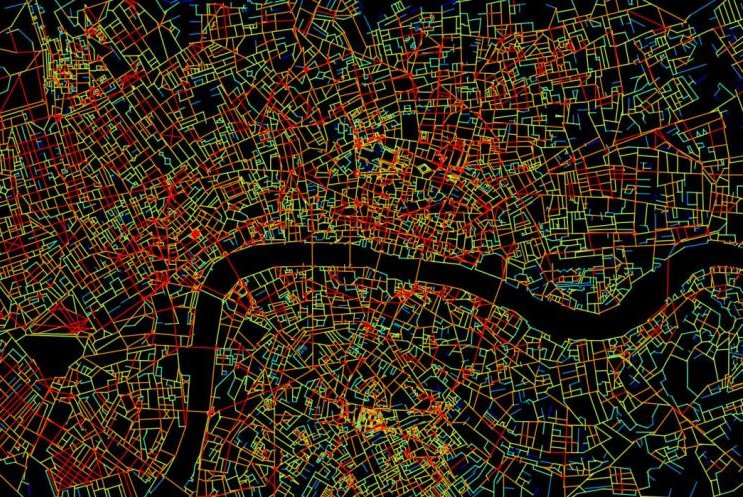Using GPS or satnav instructions to navigate a city turn off portions of the brain normally used for navigation, researchers found in a recent study. Pictured, a satnav map shows the street grid in central London, which researchers used to test participants in the study. Photo by Joao Pinelo Silva/UCL
March 21 (UPI) -- Following GPS or satnav instructions turns off part of the brain normally used for navigation, according to a new study.
Researchers at University College London scanned the brains of 24 volunteers as they navigated a simulated version of the neighborhood of Soho in central London. Scientists focused their attention on the hippocampus, a brain region used for memory and navigation, and the prefrontal cortex, a region used for planning and decision-making.
When participants navigated Soho streets without assistance, brain scans revealed spikes in neural activity in both regions as people ventured onto new streets. The same regions were silent when participants were guided by GPS instructions.
The findings -- detailed in the journal Nature Communications -- showed greater navigational options boosted brain activity.
"Entering a junction such as Seven Dials in London, where seven streets meet, would enhance activity in the hippocampus, whereas a dead-end would drive down its activity," UCL psychologist Hugo Spiers explained in a news release. "If you are having a hard time navigating the mass of streets in a city, you are likely putting high demands on your hippocampus and prefrontal cortex."
Researchers believe the human brain imagines a variety of possible routes in real time as people navigate. The latest findings fit neatly with those of a previous study that showed the human brain is always formulating a backup plan as humans move through and interact with their surroundings.
"Our results fit with models in which the hippocampus simulates journeys on future possible paths while the prefrontal cortex helps us to plan which ones will get us to our destination," Spiers said. "When we have technology telling us which way to go, however, these parts of the brain simply don't respond to the street network. In that sense our brain has switched off its interest in the streets around us."
Scientists previously found the hippocampus regions of London taxi drivers significantly increase as they learn the organization of city streets and the location of landmarks of central London.















